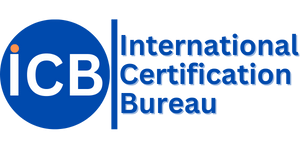About the Hospitality Industry
The hospitality industry encompasses companies offering leisure products and services, prioritizing customer satisfaction across various sectors:
Travel and Tourism
Cruises, passenger railroads, airplanes, and other transportation modes facilitating movement between destinations.
Lodging
Hotels, resorts, campgrounds, hostels, motels, and other establishments providing accommodation services.
Recreation
Amusement parks, movie theaters, museums, zoos, and other entertainment venues.
Food and Beverage
Restaurants, cafes, diners, bars, and similar establishments serving food and drinks.
The industry aims to deliver enjoyable experiences, adapting to evolving trends like technological integration, international clientele, and wellness-focused services.
Challenges in the Hospitality Industry
The hospitality sector faces various challenges, including:
- Technology Integration: Incorporating new technologies like self-check-in and online ordering while maintaining a balance with traditional service expectations.
- Environmental Sustainability: Adapting practices to reduce environmental impact and meet customer expectations for sustainability.
- Security Concerns: Ensuring safety and security in facilities and protecting sensitive data amidst evolving threats.
- Employee Retention: Addressing high turnover rates by implementing strategies to attract and retain talent in a competitive job market.
Hospitality Industry Standards Supported by NQA
Key certifications for the hospitality industry include:
ISO 9001
Quality management system standard ensuring efficient operations and customer satisfaction.
ISO 14001
Environmental management system standard promoting sustainability and compliance with regulations.
ISO 50001
Energy management system standard facilitating energy efficiency and cost savings.
ISO 45001
Occupational health and safety standard ensuring a safe working environment for employees and customers.
ISO 27001
Information security management system standard safeguarding sensitive data from cyber threats.
ISO 22000
Food safety management system standard ensuring the safety of food products throughout the supply chain.
Benefits of Hospitality Industry ISO Certifications
Achieving ISO certifications in the hospitality industry offers several advantages, including:
- Enhanced Property Value: Improved operations and customer satisfaction contribute to increased property value.
- Best Practice Implementation: Adoption of industry best practices in management, sustainability, and technology.
- Increased Productivity: Streamlined processes lead to improved efficiency and productivity.
- Enhanced Customer Experience: Quality products and services result in a superior customer experience and increased loyalty.
- Revenue Growth: Cost savings and improved operations contribute to revenue growth.
Why Work with NQA for ISO Certifications in the Hospitality Industry?
NQA provides comprehensive audit and certification services tailored to the hospitality sector, offering:
- Expert Guidance: Simplified explanations of technical requirements and certification processes.
- Transparent Pricing: Competitive rates with no hidden fees.
- Focus on Improvement: Identification of improvement opportunities to enhance operations.
- Updated Industry Knowledge: Access to experts staying abreast of industry developments and standards updates.
- Diverse Training Methods: Online, in-house, and classroom training options for acquiring technical skills.
Begin your journey towards hospitality industry certification with NQA today by requesting a quote on our website or contacting us online for further information.
